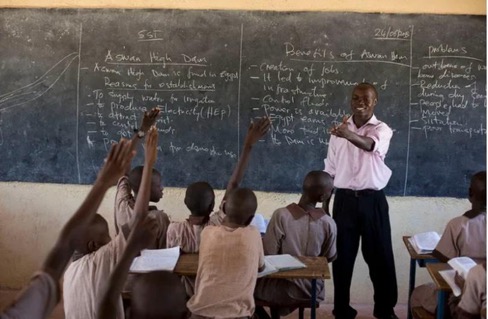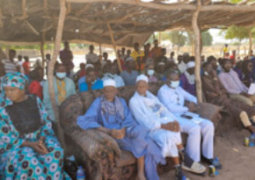
In marking the event The Point newspaper conducted an interview. One of the most pressing and key issue that emerged is low wages, amid the daily struggles that teachers continue to face in the country.
From low salaries to other resources deficiencies making the profession ‘unattractive to some of the country’s teeming young graduates,’ many teachers reported that their salaries do not reflect the hard work and dedication they put into their teaching amid the rising cost of living in the country.
This, among other pressing issues, is making life difficult for some especially those who only depend on their monthly salaries.
Mr Kutubo Sanneh, a classroom teacher for five years, underscored that he feels neglected by the state that is supposed to better the services of teachers and the field when it comes to the remuneration, condition of services among others.
“Therefore, 5th October is supposed to be a happy day for teachers. However, that is not the case for me, as I do not feel happy when this day comes. The only honorary aspect of teaching is seeing your former students excel in their careers as a result of the knowledge you have given, aside that, nothing special.” he said.
He pointed out that the pay for civil servants needs to be looked at especially teachers in view of the fact that teaching is the foundation upon which the rest of the professions are built.
“We have seen teachers teach for years till they retire they never get themselves a plot of land or a better living condition this shows that their wages deserve improvement.”
“Also, the whole education system needs to be looked at and restructured as we are teaching students to memorise just for exams and not for long lasting knowledge.”
Ensa A. Saho, vice principal Academics at Mingdaw Upper Basic and Senior Secondary School also bemoaned the low wages of teachers in the country amid resources constraints.
Saho, who has been teaching for the past 17 years, maintained that teachers face numerous constraints and that to be able to do your work as a teacher one must have certain resources at their disposal.
He made reference to the fact that most schools especially public schools lack scientific labs, quality learning materials like books, furniture, among others.
He acknowledged that most of the lessons taught in class requires practical components, thus the absence of these resources would definitely hinder quality education.
To that end, he called on teachers to reflect on their challenges and also do their best to improve performance of the students.
Another classroom teacher, Mike Kinteh, had a different perception in the field, attributing that ‘chalk dust is not good for the eyes.’
The introduction of white boards, he added, could have help the negative effect of chalk dust as one would use a marker on the whiteboard.
“Teachers' salaries should really be considered and upgraded because the pay of teachers, especially in The Gambia, is too little.”
Kinteh, who has been teaching for six years, equally called on the authorities to provide modern educational tools, give good pay to teachers, and revisit their policies for better teaching and learning in order to produce better results.
Miss Nyima Jallow, a teacher for 11 years, expressed similar sentiments.
“Teachers are calling for a reevaluation of budget allocations to ensure that schools are adequately equipped to meet the needs of both educators and students.”
Meanwhile, these sentiments shared by teachers on World Teachers' Day serve as a powerful reminder of the importance of supporting those who shape the future of our society.
Read Other Articles In National News





